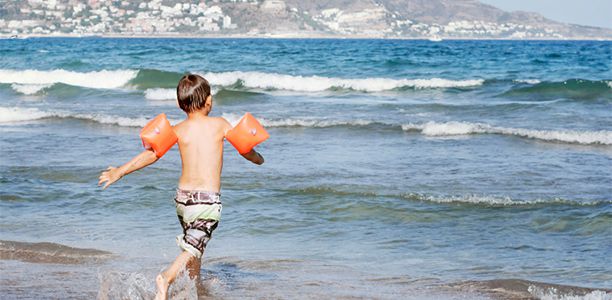Primary-school aged children who undertake a one-day beach safety awareness program can potentially save their own lives as well as others according to a Griffith University study.
“Drowning is among the 10 leading causes of death of children and young people in every region of the world,’’ says lead author Professor Jeff Wilks from the Griffith Socio-Legal Research Centre, working with Professor Donna Pendergast and Dr Harry Kanasa from the School of Education and Professional Studies.
“While thousands of water safety programs are run in Australian primary schools each year, very few are rigorously evaluated and the majority do not include a cardiopulmonary resuscitation (CPR) component.
“Nearly half of Australian primary school principals considered the level of beach and surf safety knowledge among students at their school to be poor.”
The training was designed by curriculum specialists expanding upon the Queensland Health Beach Safe Schools program, a one-hour interactive beach safety talk delivered to 50,000 primary school children each year.
One hundred and seven Year 6 students participated in the one-day training program run by surf lifesavers. It included topics such as swimming between the red and yellow flags on patrolled beaches, recognising safety signage, identifying rips and taking appropriate action if in trouble while swimming. CPR instruction was also undertaken.
The students were given a 50 question quiz one week before and eight weeks following training. Significant improvements were gained in knowledge of CPR and the response sequence for emergency situations.
Students showed a high level of understanding about the red and yellow flags that mark the supervised area of a beach and indicate that a lifeguard service is operating.
Knowledge and understanding were retained at the eight-week follow-up. Students also reported increased confidence in assisting others after training.
“The findings reinforce the value of school-based training that provides a general foundation for aquatic safety,’’ Professor Wilks said.
The study has just been published in the International Journal of Injury Control and Safety Promotion – Oxfordshire, UK.
(Source: Griffith University, International Journal of Injury Control and Safety Promotion)










